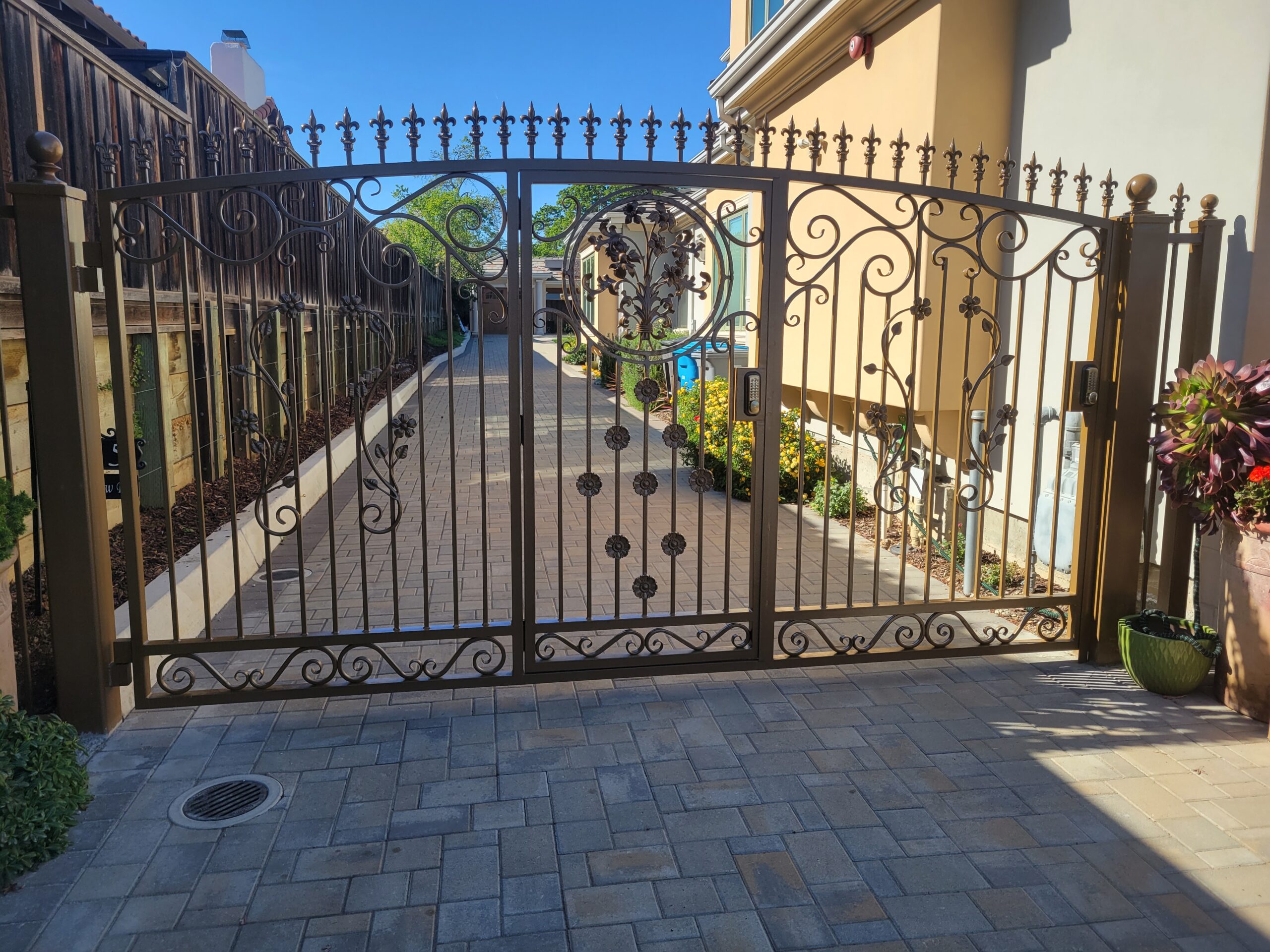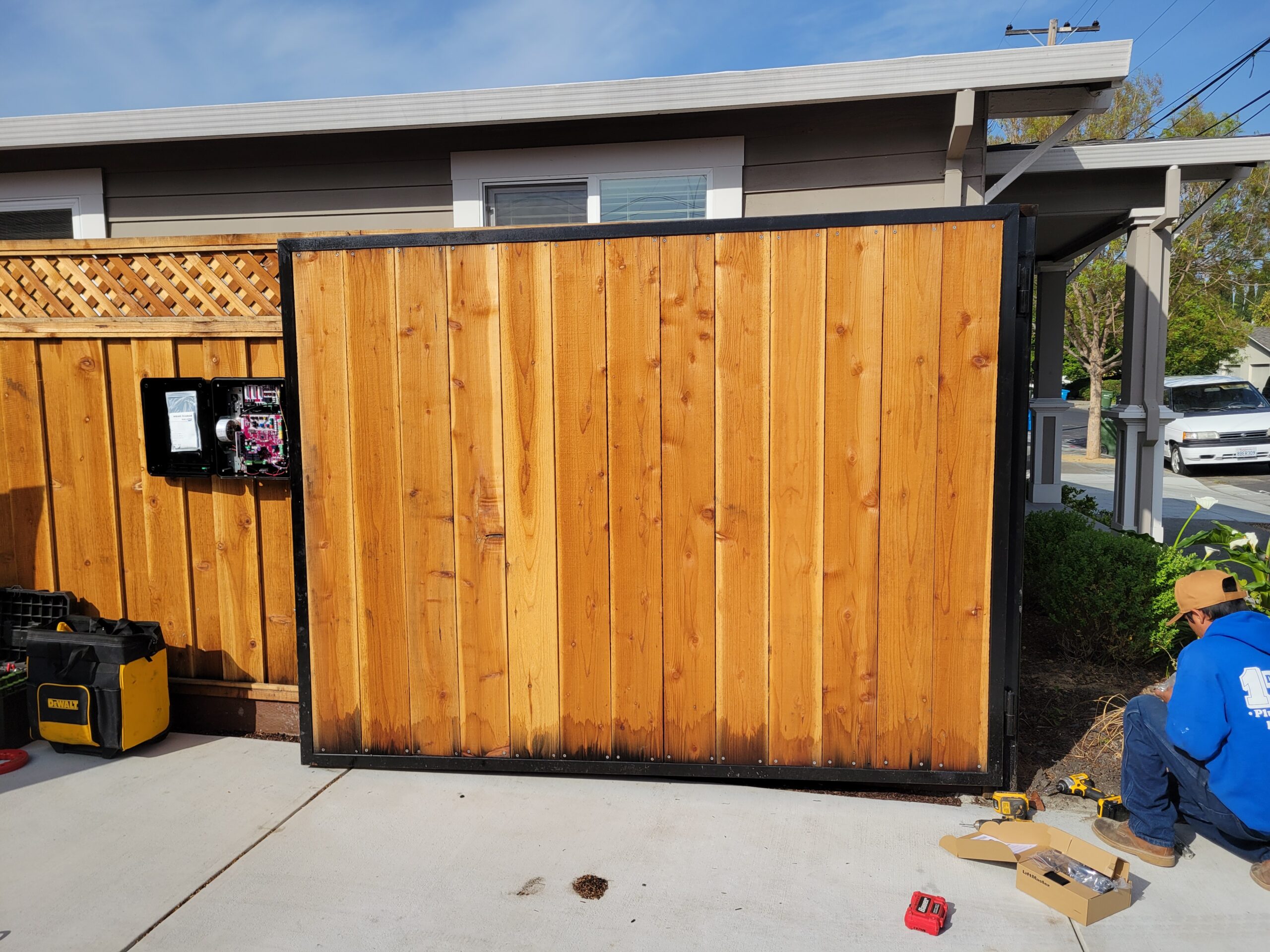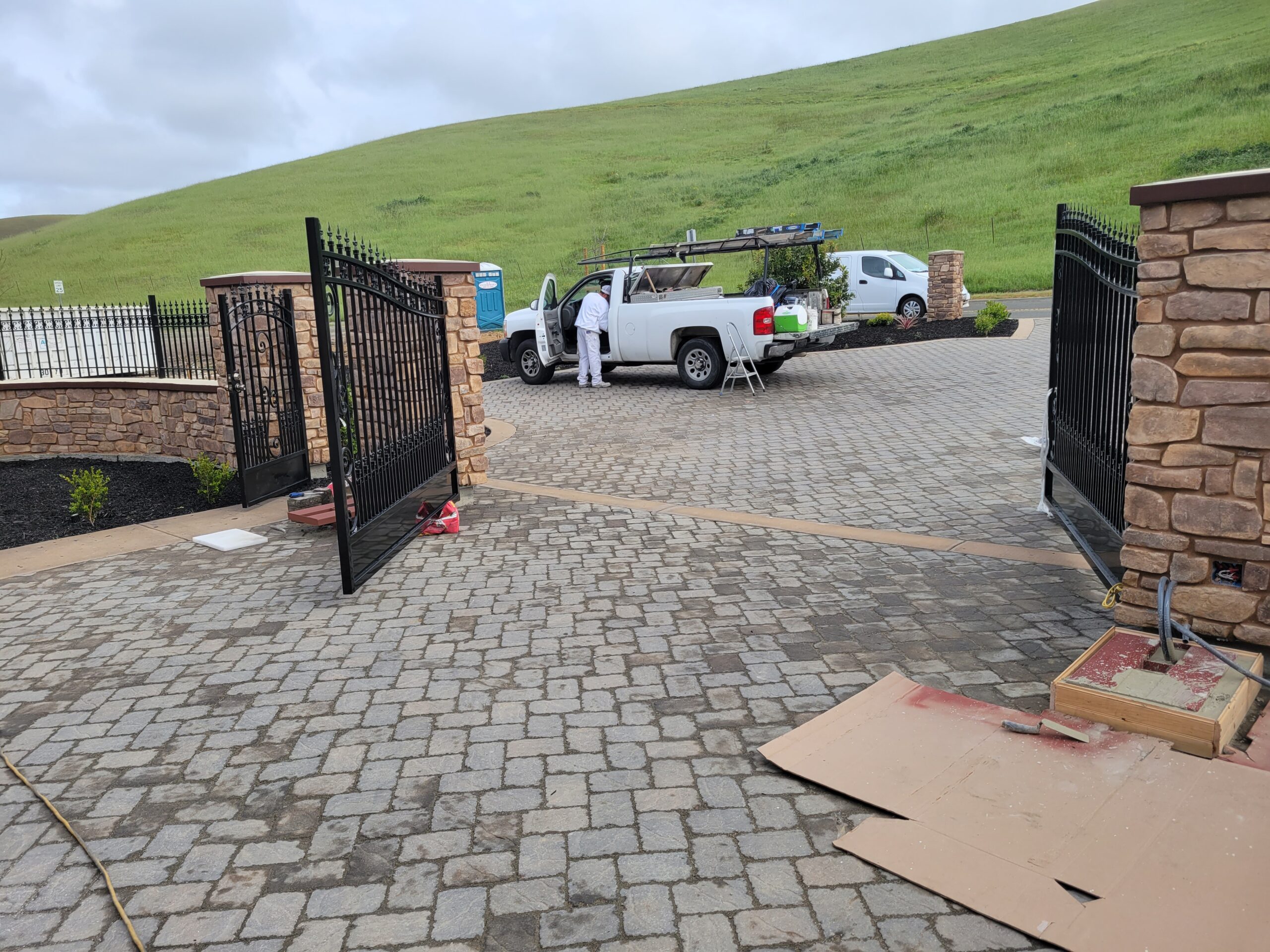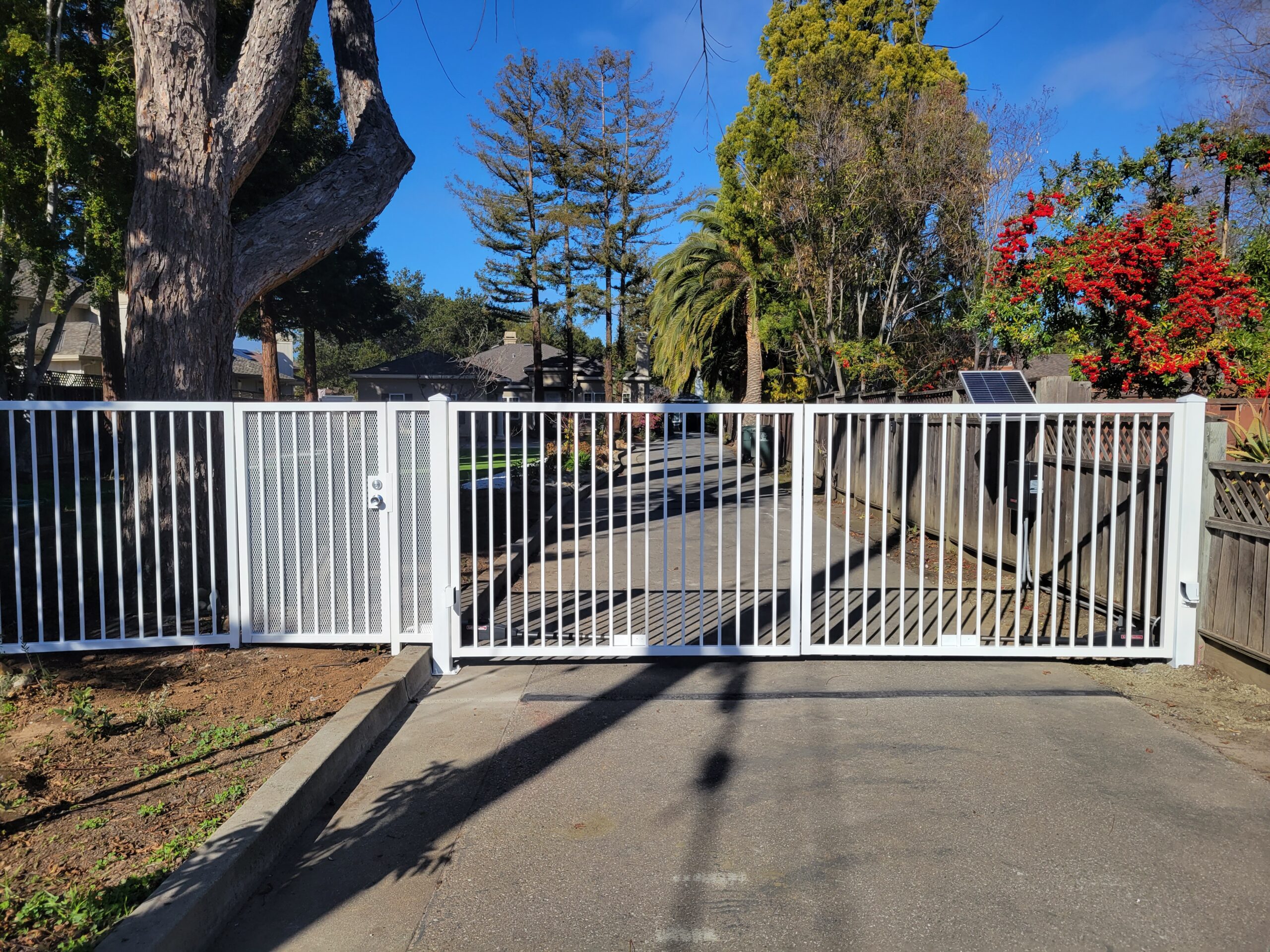Blog & News
Why Isn’t My Automatic Gate Working? Common Problems and Solutions

admin
Sep 13, 2023
We’ve all been there: you’re rushing to get somewhere, and suddenly, your automatic gate refuses to budge. It can be more than a small hiccup when you’re in a hurry. This article aims to address the common problems that might be stopping your gate from working correctly and offer practical solutions to get things moving again swiftly. Whether it’s a minor issue or something more complex, understanding what’s going on can save you a lot of time and frustration.
When situations like these arise, it might be tempting to solve the problems on your own. However, there are cases when seeking help from a 24/7 commercial locksmith in San Jose is the wisest course of action. They are adept at addressing various issues related to automatic gates, ensuring a secure and smooth operation.
In this article, we will delve into the most prevalent issues with automatic gates and shed light on how to troubleshoot them or when to call in the professionals. Our focus will be on providing clear, easy-to-follow advice, making this information accessible even if you’re not technically inclined. Stick around to unravel the mysteries behind your stubborn automatic gate!
Understanding Automatic Gate Mechanics: Common Issues and Failures
Automatic gates are an integral component of many homes and businesses, offering a level of security and convenience that is hard to match. However, like any piece of machinery, they can face a variety of problems, leading to disruptions and headaches. Understanding the mechanics behind these gates is crucial to identifying and addressing common issues and failures.
Automatic gate installation incorporates various elements, such as sensors, motors, and access controls, each having its role in ensuring smooth operation. When one of these elements fails, it can lead to the whole system being compromised. Here, we will discuss some common issues that may arise and what might be causing them.
- Power Supply Issues: Automatic gates require a consistent power supply to operate. If the gate isn’t moving, it’s essential to check whether the power supply is intact. Issues like a blown fuse or a tripped circuit breaker can lead to power disruptions affecting the gate’s functionality.
- Sensor Obstruction: Sensors play a pivotal role in the operation of automatic gates. If there’s an obstruction blocking the sensors, it can prevent the gates from opening or closing. Regularly checking and cleaning the sensor area can avoid such problems.
- Worn-Out Components: Over time, various components of the gate can wear out or break, affecting the gate’s operation. Regular maintenance and prompt replacement of damaged parts can help in maintaining optimal functionality.
- Access Control Failures: If your gate isn’t responding to the remote control or the keypad, there might be an issue with the access control system. This can be due to faulty wiring, low battery, or other technical issues requiring professional attention.
- Misaligned Gates: Gates can become misaligned due to frequent use or external impact, causing friction and hindering smooth movement. Proper alignment is crucial for preventing further damage and ensuring smooth operation.
Addressing these issues promptly can help in avoiding further complications and maintaining the security and convenience provided by automatic gates. Sometimes, troubleshooting these common problems can be manageable, but there are instances when professional intervention is necessary.
When dealing with complex issues, relying on specialists in automatic gate installation and repair can ensure accurate diagnosis and resolution. They possess the requisite knowledge and expertise to deal with a variety of problems, making sure your gate is up and running in no time.
Remember, understanding the basics of automatic gate mechanics can help you identify when something’s amiss. It empowers you to take timely action, whether it’s performing minor adjustments or calling in professionals, preventing minor hiccups from escalating into major failures. Regular maintenance and immediate attention to any discrepancies in the operation can extend the lifespan of your automatic gate and ensure that it serves its purpose efficiently and reliably.
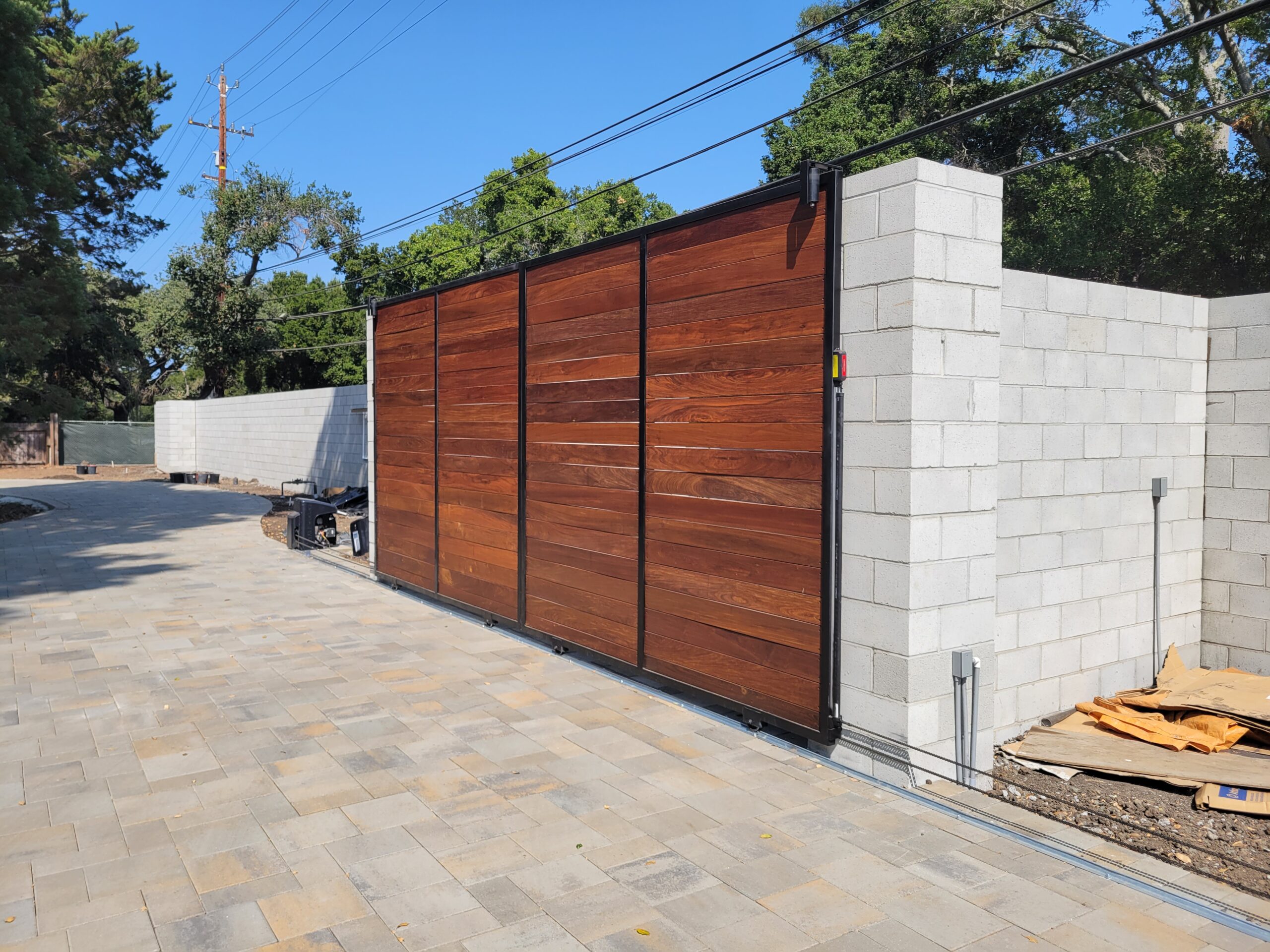
Troubleshooting 101: Resolving Frequent Automatic Gate Problems
Troubleshooting gate issues can be a practical skill, enabling you to solve minor glitches without having to call for professional help immediately. It’s about identifying problems and applying the most effective solutions to get your automatic gate back on track. Here’s a step-by-step guide to help you navigate through frequent automatic gate problems efficiently.
- Check Power Supply:
Before jumping to conclusions, always check the power supply. Ensure that the gate’s power source is connected and functioning correctly. If there’s a power outage, you might have to wait it out, or if the fuse is blown, replacing it might do the trick.
- Inspect Sensors:
If your gate isn’t responding, inspect the sensors. Clean them thoroughly as dust and debris can block the sensor’s signal. Ensure there’s no obstruction and realign them if they seem out of place.
- Examine Remote Control:
If the remote control is not operating the gate, check its batteries. Replacing old batteries can often resolve the issue. If the problem persists, it may be a signal issue or a malfunctioning remote, necessitating professional assistance.
- Test Manual Mode:
Most automatic gates come with a manual mode. If the gate isn’t working automatically, switch to manual mode and see if it operates. This can help determine whether the issue lies with the automation system or elsewhere.
- Look for Physical Damage:
Inspect the gate for any visible damage, such as dents or misalignments. Addressing these early can prevent further complications and costly repairs.
- Regular Maintenance:
Conducting regular maintenance like lubricating the moving parts and tightening loose screws can avoid many operational issues, ensuring the longevity of the gate.
Remember, not all problems can be solved with DIY fixes. Complex issues involving the gate’s internal wiring or mechanical system require a professional touch. Automatic gate repair services have skilled technicians equipped to handle intricate problems and provide long-lasting solutions.
When it comes to troubleshooting, knowing when to call in the professionals is just as important as trying to fix minor issues on your own. It’s crucial to assess the situation accurately and not to delve into repairs that are beyond one’s skill level, as it can lead to further damage.
Automatic gates are designed to provide security and convenience, and addressing issues promptly ensures the sustained functionality of the system. By being vigilant and proactive in troubleshooting gate issues, you can maintain your automatic gate in peak condition, securing your property efficiently and effectively.
The key is to be observant and responsive to the needs of your automatic gate, ensuring minor problems don’t escalate into major malfunctions that can compromise the security and convenience of your home or business. Keep this troubleshooting guide handy, and when in doubt, don’t hesitate to seek professional advice and services.
Maintenance Tips: Preventing and Addressing Automatic Gate Malfunctions
Automatic gate maintenance is crucial in prolonging the life of your gate and ensuring it operates correctly. By practicing regular maintenance, you can prevent most malfunctions and enjoy the seamless and secure functioning of your automatic gate. Here are some maintenance tips that can help in preventing and addressing gate malfunctions efficiently.
- Regular Cleaning:
Dirt, dust, and debris can obstruct the sensors and hinder the movement of the gates. Regularly clean the gate tracks, sensors, and other components to avoid blockages and ensure smooth operation.
- Lubrication:
The moving parts of the gate, such as hinges, chains, and rollers, need regular lubrication to prevent friction and wear and tear. Use suitable lubricants every few months to maintain smooth movement and prevent damage.
- Inspecting for Damage:
Periodically inspect your automatic gate for any visible signs of damage or wear. Look for dents, rust, and loose or missing parts. Addressing these issues promptly can prevent further damage and malfunctioning.
- Testing Sensors and Controls:
Regularly test the gate’s sensors and controls to ensure they are responsive and functioning correctly. If any discrepancies are noted, it might be time to call in a professional for a thorough checkup.
- Battery Checkup:
The backup battery is crucial for the gate’s operation during power outages. Regularly check the battery and replace it if needed to avoid being caught off guard during an electricity failure.
- Software Updates:
If your automatic gate system uses software controls, ensure they are updated regularly. Updates can fix bugs and enhance the performance and security of your gate system.
- Professional Inspection:
Having your gate professionally inspected at least once a year can help in identifying potential problems before they become major issues. Professional maintenance services can provide a comprehensive assessment and necessary adjustments to ensure optimal functioning.
By implementing these automatic gate maintenance tips, you can significantly reduce the risk of malfunctions and ensure the longevity and reliability of your gate. It’s all about being proactive and keeping an eye out for potential issues.
Preventative maintenance can save you from the hassle of dealing with unexpected failures and the expenses associated with extensive repairs or replacements. It aids in maintaining the security and convenience that automatic gates provide and ensures that they continue to operate efficiently, safeguarding your property.
Remember, an ounce of prevention is worth a pound of cure. Regular automatic gate maintenance can be the difference between a well-functioning gate and one plagued with constant problems. So, embrace these maintenance tips and keep your automatic gate in tip-top shape, ensuring peace of mind and security for years to come.
Conclusion
Automatic gates are a pivotal component in securing homes and commercial premises, offering not just security but also adding to the convenience. This guide has walked you through the common problems, troubleshooting methods, and maintenance tips to keep your gate running smoothly. Remember, regular maintenance and prompt addressing of issues are crucial in ensuring the longevity and optimal functionality of your automatic gate.
RNA Automatic Gates specializes in automatic gate repair and installation, providing top-notch services to address a variety of gate issues. Our professionals are skilled in troubleshooting and resolving problems swiftly and effectively. Trusting experts like us ensures your gate receives the proper care and attention it needs to operate seamlessly and reliably.
By understanding your gate’s mechanics, troubleshooting minor issues, performing regular maintenance, and knowing when to call in the professionals, you can ensure the security and efficiency of your automatic gate for years to come. So, embrace these insights and tips, and keep your gate in its prime, safeguarding your property with RNA Automatic Gates.
Frequently Asked Questions
Question: What is the most common problem with automatic gates?
Answer: The most common problem is often power supply issues, which can result from a power outage or a blown fuse. Regularly checking the power supply can prevent such issues.
Question: How often should I have my automatic gate professionally inspected?
Answer: It is recommended to have your automatic gate professionally inspected at least once a year. This helps in identifying and addressing potential issues before they escalate.
Question: Can I perform maintenance tasks on my automatic gate myself?
Answer: Yes, performing basic maintenance tasks like cleaning and lubrication is crucial and can be done by yourself. However, for more complex issues and regular professional checkups, calling in the experts is advisable.
Question: Why is my automatic gate moving slowly?
Answer: Slow movement can be due to several reasons like obstruction in the tracks, lack of lubrication, or worn-out components. Regular cleaning, lubrication, and timely replacement of damaged parts can resolve such issues.
Question: What should I do if my remote control is not working?
Answer: First, check if the batteries need replacing. If the remote still doesn’t work after replacing the batteries, it could be due to signal issues or a malfunctioning remote, necessitating professional assistance.




